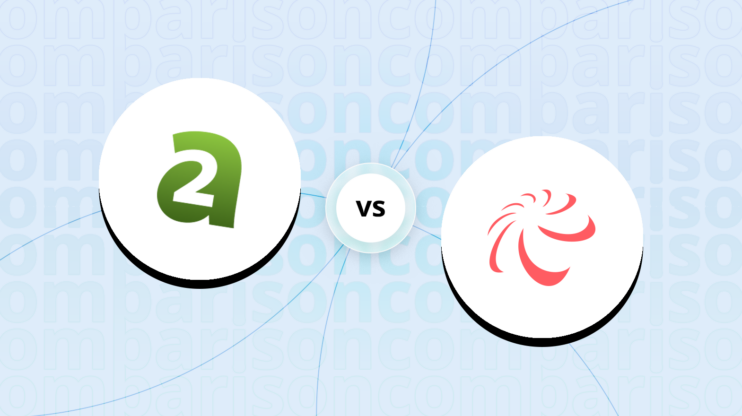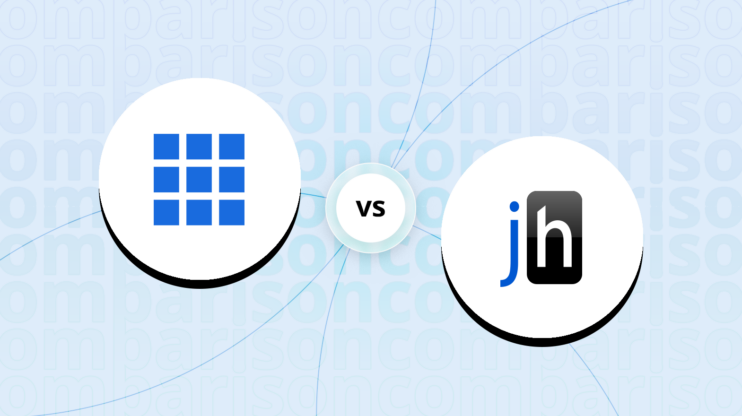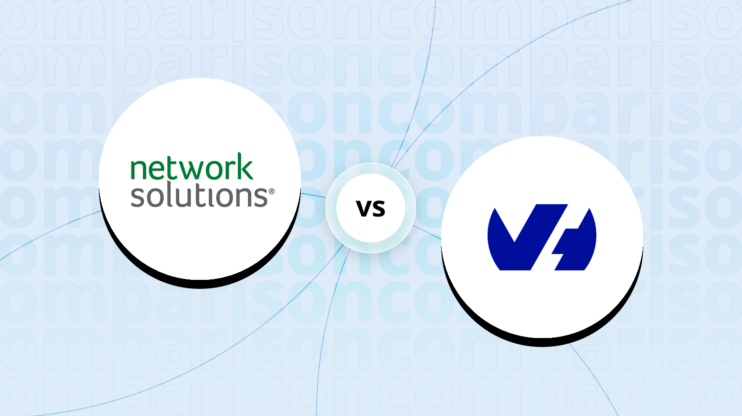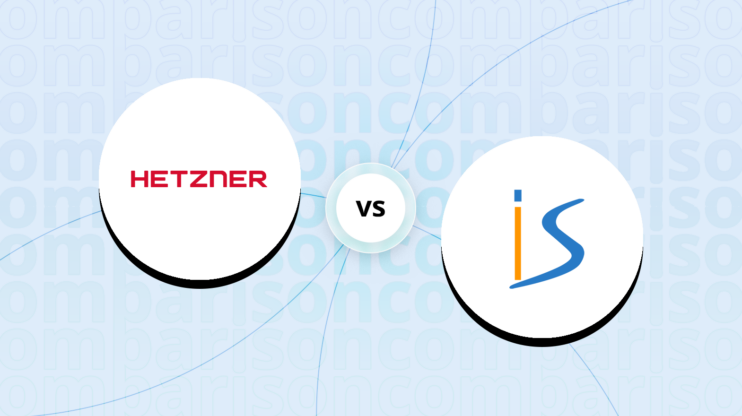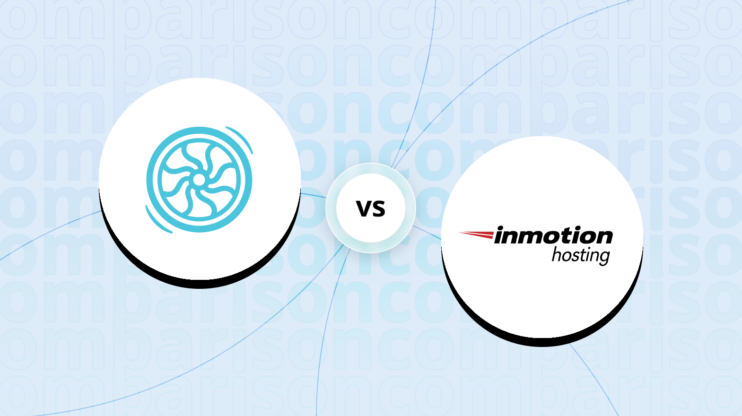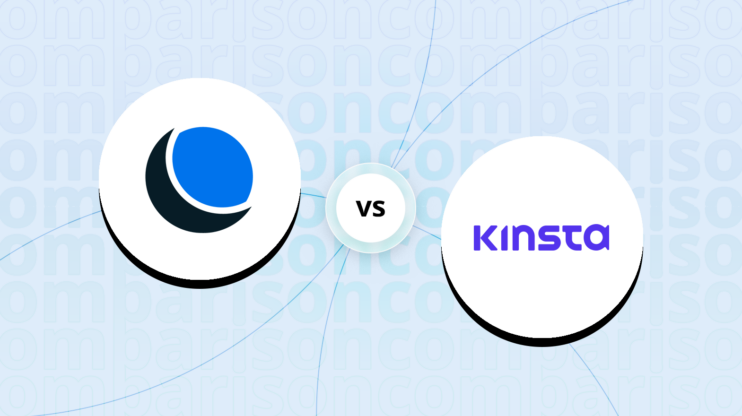WP Engine vs Interserver: Final verdict
Looking over WP Engine vs. InterServer, it’s clear why both hosts are so popular. They have both hosted millions of
websites that run on WordPress for decades, building up a loyal customer base.
-
WP Engine (Overall grade: 8.6)
is renowned for its specialized WordPress hosting, delivering high performance and reliability with features such as EverCache® technology and a global CDN. It excels in uptime, boasting 99.99% availability and proactive security measures blocking millions of threats daily. Its managed plans, developer tools, and priority support cater well to businesses and agencies managing high-traffic websites. However, WP Engine’s offerings come at a premium price and lack options like shared, cloud, or dedicated hosting, making it more suitable for those specifically focused on WordPress sites.
InterServer (Overall grade: 8.1)
provides a broader range of hosting types, including shared, VPS, and dedicated hosting, at competitive prices, and is particularly appealing for users seeking versatile and budget-friendly solutions. Its unlimited storage, free SSL certificates, and familiarity with control panels like cPanel and DirectAdmin make it user-friendly for a wide audience. Nonetheless, InterServer’s performance can occasionally be inconsistent, with users experiencing slower server speeds and minor downtime issues. Despite these drawbacks, InterServer’s comprehensive support options and scalability make it a solid choice for diverse hosting needs beyond just WordPress.
 Overall grade:8.6 |
 Overall grade:8.1 |
|
|---|---|---|
| Uptime and Availability | 9.6 | 8.7 |
| Hosting Performance | 9.1 | 8.2 |
| Hosting Security | 9.4 | 8.3 |
| Price | 8.1 | 8.1 |
| Hosting Features | 6.8 | 6.2 |
| Ease Of Setup | 8.3 | 8.7 |
| User Management | 8.8 | 7.4 |
| Customer Support | 8.9 | 9.0 |
| User feedback | 4.6/5 | 4/5 |
Hosting types offered
Both platforms provide a variety of hosting types, each designed to meet the different needs of users.
 |
 |
|
|---|---|---|
| Shared hosting | ||
| Cloud hosting | ||
| WordPress hosting | ||
| Ecommerce hosting | ||
| VPS hosting | ||
| Dedicated hosting |
Although both offer a variety of hosting plans tailored to different needs, in
certain cases, one platform may prove to be more suitable.
Detailed comparison
Uptime and availability
Evaluates the average uptime statistics, uptime guarantee and overall availability of the hosting
provider
Score Components:
- Uptime percentage (30%): evaluates the uptime statistics in given period of time
- Uptime guarantee (20%): Assesses if the platform offers an uptime guarantee and
whether the actual uptime matches the promised guarantee. - General performance (25%): Evaluates how fast is the average response time and overall
it’s stability. - Responsiveness (10%): Adaptability to different devices and screen sizes.
- Availability (25%): Reflects the total downtime and number of outages.
 9.6
9.6
 8.7
8.7
SECTION 1:
Winner WP Engine: Known for its exceptional uptime and availability.
SECTION 2:
WP Engine excels in ensuring websites are always accessible and performing optimally. With 24/7 uptime monitoring, users receive immediate alerts in case of any issues. The platform boasts an exceptional 100% uptime over a two-month period and guarantees 99.99% uptime with a strong SLA. Its strategic global data centers help reduce latency, offering visitors from different regions faster access.
SECTION 3:
InterServer provides reliable hosting with a guarantee of 99.9% uptime and has long-term performance of 99.99% uptime. Despite this, its average server response time of 662ms falls short compared to WP Engine’s performance. InterServer’s reliance on a sole geographic region for data centers limits its global performance, but partnerships with Cloudflare and proprietary caching mechanisms strive to mitigate this. While InterServer is a solid choice, WP Engine’s more efficient uptime and broader global presence make it the winner.
Which one has better hosting performance?
Score Components:
- Hosting speed (30%): This includes SSD quality, Load times, PageSpeed score ranges,
additional information on website speed, built-in plugins for performance enhancement, available caching
methods, and CPU/RAM options - CDN (20%): Considers whether CDN is available or not, whether it’s free or paid, and
the quality of the CDN service - Available data centers (30%): Evaluates the number of data centers and their locations
globally. - Scalibility (20%): Looks at whether elastic scaling is available, the process required
to scale (manual upgrade vs. automatic scaling), the presence of dedicated servers, and the costs
associated with scaling.
 9.1
9.1
 8.2
8.2
🏆 Winner WP Engine: Reliable, high-speed hosting optimized for WordPress.
Comparing general performance, WP Engine and InterServer both excel in their own right. WP Engine impresses with fast page load times thanks to its EverCache® technology and global CDN. It operates data centers across various regions, enhancing its speed and reliability. Conversely, InterServer ensures rapid performance with SSD caching servers and an ultra-fast web server. Its free Cloudflare CDN and route-optimized network contribute to efficient data transmission. Both hosting services offer around-the-clock support, but WP Engine’s support is especially noted for WordPress-specific expertise.
Website speed
WP Engine stands out with its Core Web Vitals optimization and the latest PHP version for quick page loads, especially valuable for Google rankings and user experience. Its EverCache® technology is designed to cope with heavy traffic, minimizing server load and maintaining excellent speed consistently. InterServer, while also quick, focuses on SSD caching servers and a 10GB Cisco network. These features ensure speedy website performance but may slightly lag behind WP Engine when handling high traffic volumes.
Scalability
WP Engine offers scalable architecture with isolated resources to manage any traffic spike, without the necessity for plan upgrades. They don’t specifically mention the details of their dedicated servers or associated costs. InterServer, on the other hand, provides easy scalability to VPS or dedicated servers with no downtime during migration. They also allow for flexible deployments, yet again without detailed cost implications mentioned. Both offer effective solutions for growing businesses, albeit through different methods.
Which one has better security features?
and regulatory requirements
Score Components:
- Technical security measures (40%): This includes encryption, firewalls, DDoS
protection, secure configurations, server monitoring, access control and availability of security addons
(e.g Sitelock security). - Operational security measures (30%): Encompasses data privacy, backups and data
redundancy. - Compliance and certifications (20%): Adherence to legal and regulatory requirements
(e.g., GDPR, HIPAA) and possession of certifications (e.g., ISO 27001, SOC 2). - Business and reliability (10%): Factors in the provider’s reputation, uptime
guarantees, and customer support.
 9.4
9.4
 8.3
8.3
🏆 Winner
WP Engine: Provides robust security features and continuous monitoring to safeguard your WordPress website year-round.
Both WP Engine and InterServer, have notable differences in their approaches to technical and operational
security, as well as in their compliance with regulations.
Technical security measures:
WP Engine and InterServer each offer a suite of technical security measures, though WP Engine stands out with its enterprise-grade technology and global edge security. WP Engine automates threat detection to block 72 million attacks daily, offers DDoS mitigation, managed WAF, and SSL. InterServer, while providing robust security with its InterShield solution, focuses on spam and virus protection, and machine learning firewalls. Additionally, WP Engine offers automated core WordPress updates, daily backups, and proactive security alerts, while InterServer emphasizes end-to-end email encryption and spam filtering. WP Engine’s continuous monitoring and proactive measures give it an edge in technical security.
Operational security measures:
WP Engine’s operational security includes always-on monitoring, which blocks over 26 billion attacks annually, and proactive threat detection. They also provide 24/7 global support with a 97% satisfaction rate, ensuring quick responses to security incidents. InterServer offers physical data center security with 24/7 surveillance and guards, as well as redundancy measures for power, cooling, and network systems. InterServer’s operational offerings, including self-healing hardware and guaranteed email delivery, enhance performance but are not as comprehensive in security as WP Engine’s real-time management and global support.
Compliance and certifications:
WP Engine meets rigorous compliance standards, being SOC-2 compliant and ISO 27001-2013 certified. It also includes PCI vulnerability scanning for its sites. InterServer emphasizes GDPR adherence through privacy and security measures but does not specify details on PCI or HIPAA compliance, focusing more on general security practices and data protection.
 |
 |
|
|---|---|---|
SSL certificate |
Free SSL certificates |
Free SSL certificates |
Additional security features |
Two-factor authentication, daily backups, automated updates |
Spam filtering, end-to-end email encryption, self-healing hardware |
PHP versions |
Not specified |
Supports multiple versions up to PHP 8.3 |
GDPR compliance |
Not specified |
Adherence to GDPR standards |
HIPAA compliance |
Not specified |
Not specified |
PCI compliance |
PCI vulnerability scanning |
Not specified |
Hosting features
Score Components:
- Domains (20%): Assesses the availability of a free domain, domain purchase options, and
pricing - Email (15%): Considers if the provider offers full email hosting, or is reselling
third-party service, and if the email is only transactional or not - Website builder (15%): Checks if website builder is available, and it’s user
friendliness and overall the level of customization allowed. - Staging environment (20%): Determines if a staging environment is available, allowing
for testing changes before going live. - FTP & SFTP accounts (10%): Evaluates if and how easily users can access FTP and
SFTP accounts - Git and SSH access (20%): Assess whether Git is integrated into the hosting service and
if SSH access is provided
 6.8
6.8
 6.2
6.2
🏆 Winner WP Engine: A complete solution with managed services and high-performance features for WordPress users.
WP Engine and InterServer offer robust hosting solutions catered to different types of online needs. WP Engine offers managed services tailored specifically for WordPress sites, providing end-to-end management, proactive WordPress security, and advanced developer tools. This is ideal for users seeking high-performance and dedicated WordPress optimization. On the other hand, InterServer provides essential hosting features like unlimited storage space, weekly backups, and ultra-fast SSD caching servers. They also include cloud apps and a free Cloudflare CDN, making it a versatile choice for users who need comprehensive and high-speed hosting without being confined to just WordPress.
WP Engine shines with its managed plans, including options optimized for eCommerce through WooCommerce. This can be particularly appealing if you’re looking to build an online store with robust support and performance guarantees such as a 99.99% uptime SLA. The availability of advanced features like GIT & SFTP access and local WordPress development tools make it a compelling choice for developers. InterServer, while not focusing specifically on WordPress, offers unlimited FTP accounts and a variety of cloud apps to cater to a broader range of hosting needs. They provide essential tools and optimizations without restrictive add-on costs, making it a budget-friendly option with extensive functionality.
 |
 |
|
|---|---|---|
Free Domain |
No |
No |
Free SSL |
Yes |
Yes |
Email Hosting |
Not Included |
No |
Website Builder |
No |
No |
Staging Environment |
Yes |
No |
FTP & SFTP Accounts |
Yes |
Yes |
Git and SSH Access |
Yes |
Not explicitly mentioned |
Free Backup |
Yes |
Yes |
Money Back Guarantee |
No |
No |
a location.
As a result in rare cases the features mentioned here can differ from the ones you see on their websites.
Both providers support a range of users from beginners to experts with user-friendly website builders and WordPress staging areas. However, in terms of developer tools, both WP Engine and InterServer offer robust options including SSH access, support for multiple programming languages, and Git for version control, thus appealing to developers looking for advanced capabilities.
Email services:
WP Engine does not offer email hosting services as part of their plans, focusing primarily on high-performance WordPress hosting capabilities. On the other hand, InterServer does not include comprehensive email hosting services either, but they allow for basic transactional email capabilities. If you require extensive email hosting options, you might want to consider third-party services like Google Workspace or Outlook, which can be integrated with both providers.
Price
Score Components:
- Plan value (40%): What each pricing tier offers.
- Transparency and clarity (30%): Clearness of pricing structures.
- Flexibility of plans (20%): Range of options to suit different budgets.
- Hidden costs (10%): Additional expenses not included in the plan.
 8.1
8.1
 8.1
8.1
🏆 Winner
WP Engine: Offers premium managed WordPress hosting with comprehensive features including automated updates, security patching, and premium themes.
Evaluating the pricing of plans among various hosting providers can be complex due to their differing pricing and renewal strategies. Additionally, certain plans require annual commitments, which adds to the difficulty of making comparisons. The prices listed are based on monthly commitments; plans requiring annual commitments are indicated. Additionally, although some providers offer identical plans for WordPress and shared hosting, we have created separate tables for each to enhance clarity.
WP Engine and InterServer present distinct pricing models and features. WP Engine’s plans, starting from $20/month, include specialized managed WordPress hosting with premium themes, automated updates, and advanced security features. Meanwhile, InterServer offers highly competitive pricing with their Standard Web Hosting plan at just $2.50/month, providing unlimited storage, transfer, and websites, along with free SSL certificates. Both services include various support levels, with WP Engine offering phone support starting from the Professional plan, while InterServer provides round-the-clock support across their plans. Each provider has unique offerings, such as WP Engine’s Genesis blocks and priority support, making it suitable for different user needs.
 |
 |
|---|---|
|
Startup Plan $20/month
Managed WordPress Hosting, 1 website, 10 GB storage, 50 GB bandwidth, 24/7 chat support, free SSL, automated updates, 10 premium themes Value for price:8.5
|
1 Core $6/month
WordPress Hosting, 1 website, 30 GB SSD storage, 2 TB transfer, 24/7 support, free migration, 99.9% uptime guarantee, high-performance storage Value for price:8.1
|
|
Professional Plan $40/month
Managed WordPress Hosting, 3 websites, 15 GB storage, 125 GB bandwidth, 24/7 chat & phone support, free SSL, automated updates, 10 premium themes Value for price:8.0
|
N/A |
|
Growth Plan $77/month
Managed WordPress Hosting, 10 websites, 20 GB storage, 200 GB bandwidth, 24/7 priority support, free SSL, automated updates, 10 premium themes Value for price:7.9
|
N/A |
|
Scale Plan $194/month
Managed WordPress Hosting, 30 websites, 50 GB storage, 500 GB bandwidth, 24/7 priority support, free SSL, automated updates, 10 premium themes Value for price:7.8
|
N/A |
|
Custom Plan $600/month
Contact Sales for websites, storage, bandwidth; includes priority support, automated updates, premium onboarding, and dedicated account manager Value for price:7.5
|
N/A |
 |
 |
|---|---|
| N/A |
Standard Web Hosting $2.50/month
Unlimited websites, unlimited storage, unlimited transfer, 24/7 support, free SSL, easy-to-use cPanel, free migration Value for price:8.5
|
| N/A |
Reseller Plan RS One $19.95/month
Direct Admin Control Panel, 80 GB disk space, 500 GB bandwidth, unlimited accounts, free SSL, client management Value for price:7.9
|
| N/A |
Reseller Plan RS Two $29.95/month
Direct Admin Control Panel, 120 GB disk space, 1000 GB bandwidth, unlimited accounts, free SSL, client management Value for price:7.7
|
| N/A |
Reseller Plan RS Three $39.95/month
Direct Admin Control Panel, 160 GB disk space, 1500 GB bandwidth, unlimited accounts, free SSL, client management Value for price:7.5
|
| N/A |
Reseller Plan RS Four $49.95/month
Direct Admin Control Panel, 200 GB disk space, 2000 GB bandwidth, unlimited accounts, free SSL, client management Value for price:7.3
|
| N/A |
Reseller Plan RS Five $69.95/month
Direct Admin Control Panel, 280 GB disk space, 2000 GB bandwidth, unlimited accounts, free SSL, client management Value for price:7.1
|
 |
 |
|---|---|
| N/A |
VPS Special $6/month
30 GB SSD storage, 2 GB RAM, multiple OS, instant activation, cPanel or Direct Admin, 24/7 support Value for price:8.3
|
| N/A |
Windows Hosting Plans Pricing Not Specified
25 websites, unlimited storage & transfer, free SSL, 24/7 support, Plesk Control Panel Value for price:7.8
|
| N/A |
Storage Hosting: ST 100 $3/month
200 GB space, 1 TB transfer, 5 domains, subdomains unlimited, comprehensive controls Value for price:8.0
|
| N/A |
Storage Hosting: ST 200 $5/month
400 GB space, 3 TB transfer, 10 domains, subdomains unlimited, comprehensive controls Value for price:8.2
|
As a result in rare cases the prices displayed here can differ from the ones you see on their websites.
Enterprise plans
For enterprises, WP Engine offers a Custom Plan starting at $600/month with fully managed WordPress hosting, dedicated technical account management, premium onboarding, and additional security features. InterServer’s plans are more scalable and flexible in terms of resource allocation, starting at competitive prices like their Reseller Plans, which can scale up to $69.95/month offering substantial disk space and bandwidth. WP Engine is better suited for enterprises requiring comprehensive managed WordPress hosting, whereas InterServer provides extreme flexibility and scalability ideal for resellers and those needing tailored cloud solutions.
WP Engine vs Interserver: Ease of setup
platform.
Score Components:
- Site migration (25%): Assesses whether the provider offers tools for site migration,
either automated or manual, and whether these services are free or require a fee. - Admin panel usability (35%): Evaluates the type of admin panel provided, such as the
standard cPanel or a custom solution, focusing on its accessibility and user-friendliness for both
technical and non-technical users. - Setup features (20%): Examines the availability and ease of use of various setup
features, including FTP accounts, file managers, email account setup, PHPMyAdmin, and easy CDN
configuration. - Help center quality (20%): Measures the quality and accessibility of the provider’s
help center resources, including articles and tutorials.
 8.3
8.3
 8.7
8.7
🏆 Winner
InterServer: Offers a straightforward setup with powerful tools and comprehensive support.
WP Engine provides an advanced control panel tailored for WordPress users, integrating various user-friendly features for both technical and non-technical audiences. The control panel includes developer tools such as Git Push and SSH Gateway setup, making it an excellent choice for developers looking to manage their WordPress sites efficiently. For non-technical users, the platform settings, security protocols, and performance optimization options are well-documented and easy to manage.
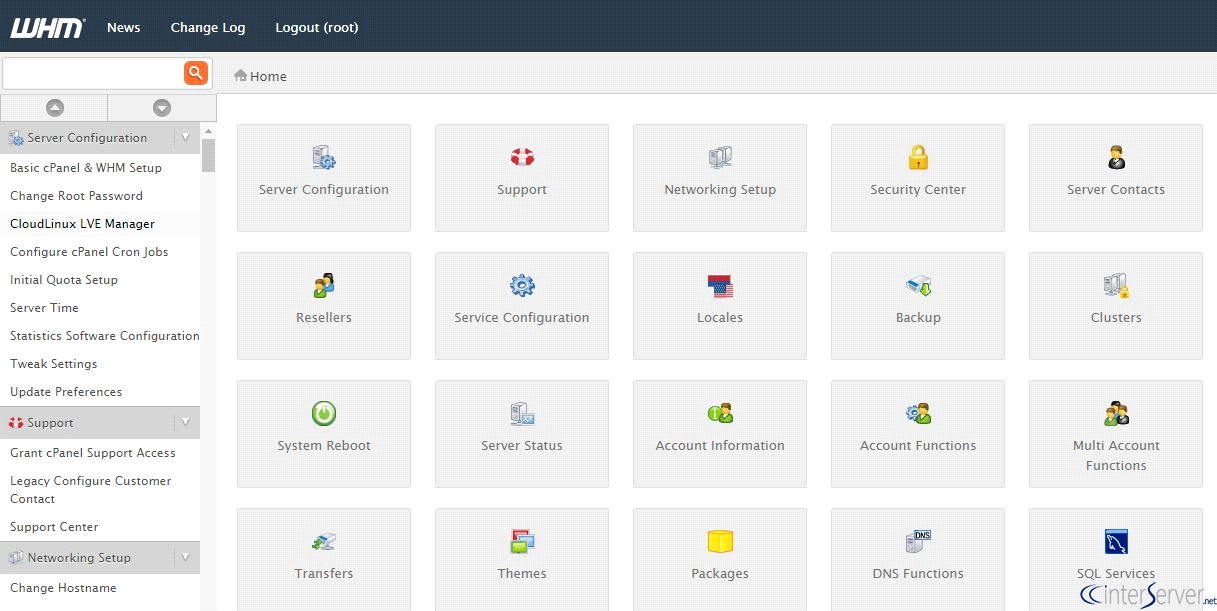
InterServer, on the other hand, relies on familiar control panels like cPanel and DirectAdmin. These interfaces are widely recognized for their simplicity and user-friendliness, catering to users with varying levels of technical expertise. cPanel’s one-click script installations for over 461 scripts substantially enhance ease of use, simplifying the complexity of managing web applications and CMSs like WordPress, Joomla, and Drupal.
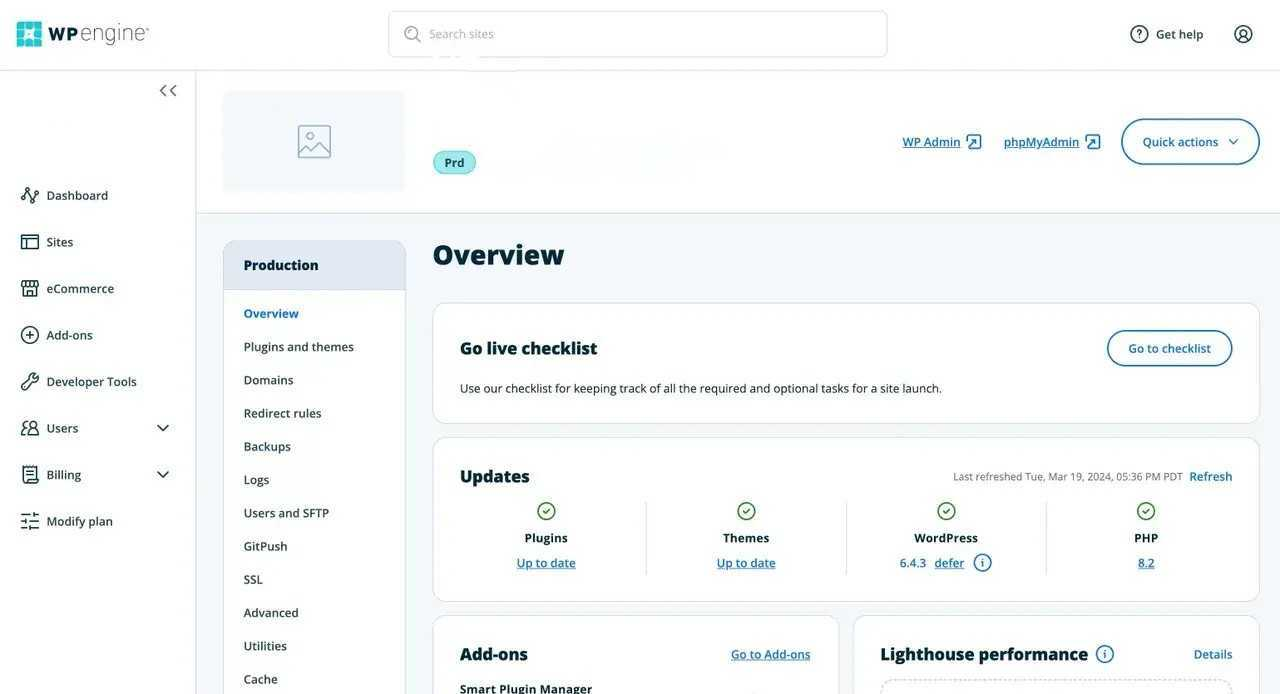
WP Engine features an Automated Migration plugin that expedites the migration process for WordPress sites. This plugin can be configured quickly, making site transfers a breeze. In scenarios where the automated solution is incompatible, WP Engine provides a detailed Manual Migration Checklist. Both migration options are free, supported by 24/7 chat assistance. InterServer also offers a free migration service for standard shared hosting users. This service requires customers to have a complete cPanel backup ready for download, ensuring a smooth transition without any server-side complications.
WP Engine’s Support Center is robust, offering extensive how-to guides, video tutorials, and 24/7 technical support via phone and chat. The platform’s resources cover a wide range of topics, ensuring users can find detailed assistance on nearly any subject related to WordPress and hosting. Conversely, InterServer provides a solid knowledge base with helpful articles and 24/7 support through multiple channels. Both platforms excel in offering detailed, accessible help resources.
User management
accessibility.
Score Components:
- Role customization (40%): Flexibility in creating and defining user roles and
permissions. - Ease of management (30%): User interface and tools for managing users.
- Access control (20%): Effectiveness of access control measures for different user
levels. - Scalability (10%): Ability to manage a growing number of users efficiently.
 8.8
8.8
 7.4
7.4
🏆 Winner: WP Engine: Offers a comprehensive and detailed approach to user management and roles.
WP Engine provides a rich array of user roles and permissions designed to give granular control over access and capabilities. It supports distinct roles like Owner, Full User (with and without billing), and Partial User (with and without billing), each having specific permissions tailored to various management needs. This flexibility enables WP Engine to handle complex user hierarchies, making it easy to delegate different levels of access based on precise requirements. InterServer, on the other hand, relies heavily on traditional control panels such as cPanel, Plesk, and DirectAdmin for managing user roles, which can be effective but lacks the built-in granularity of WP Engine’s defined roles.
WP Engine’s user management tools are intuitively designed within its User Portal, making tasks like adding, editing, and removing users straightforward. The interface offers distinct sections for managing Account Users, Environment Users, and Technical Contacts, providing a seamless experience. InterServer’s reliance on third-party control panels means users can manage accounts and permissions effectively through cPanel, Plesk, and DirectAdmin, but this may sometimes lead to inconsistent user experiences depending on the chosen control panel.
WP Engine excels in implementing access control measures, ensuring users have the right permissions for their roles, without unnecessary complexities. This ensures users can only access and modify environments they are permitted to. Additionally, WP Engine’s ability to log and filter account activities further fortifies its access control policies. InterServer provides essential access control measures through its control panels, but it may face challenges in scaling efficiently for a rapidly growing user base due to less integrated user management and monitoring tools.
WP Engine user roles table:
| Role | Description | Access highlights |
|---|---|---|
| Owner | Full access to account and site management, billing, and user administration. | Can delete sites, move sites, close accounts, add/remove users, accept/transfer sites, and purchase/manage add-ons. |
| Full (with Billing) | Manages billing and site transfers but cannot delete sites or users. | Can make billing changes, purchase add-ons, enable/disable Smart Plugin Manager, and accept/transfer sites. |
| Full (without Billing) | Manages site settings without billing access. | Can enable/disable Smart Plugin Manager and accept transferable sites, but cannot initiate transfers or promote to billable sites. |
| Partial (with Billing) | Access to specific environments and billing, but limited site management. | Can make billing changes, copy/restore environments, transfer sites within given permissions, and promote transferable sites to billable sites. |
| Partial (without Billing) | Limited to specific environments with restricted functionalities. | Can modify designated environments, copy/restore between accessible environments, cannot manage transferable sites or Smart Plugin Manager actions. |
Customer support
hosting provider.
Score Components:
- Support communication channels (30%): Measures the variety of customer support types
provided (live chat, chatbot, email, phone, etc.) - Availability (20%): Assesses the availability hours for each channel, including 24/7
support options. - Technical support quality (30%): Assesses whether the provider offers comprehensive
technical support, including hardware upgrades (e.g., HDD to SSD), software installations, and web
server configuration changes. - Enterprise support (20%): Checks if there are dedicated or priority support services
for enterprise-level customers.
 8.9
8.9
 9.0
9.0
🏆 Winner
InterServer: Offers a slightly more comprehensive range of customer support options compared to WP Engine.
 |
 |
|
|---|---|---|
Phone support |
||
Live chat support |
||
Chatbot |
||
Email/ticket support |
||
Enterprise support (dedicated agent, priority support) |

Both WP Engine and InterServer offer 24/7 support, but there are some notable differences. WP Engine’s support includes phone and chat channels, and is tailored for WordPress users with access to WP specialists. Additionally, premium support plans are available for those needing more advanced assistance. The user portal also enhances self-service options, making it easy to manage accounts and access troubleshooting guides.
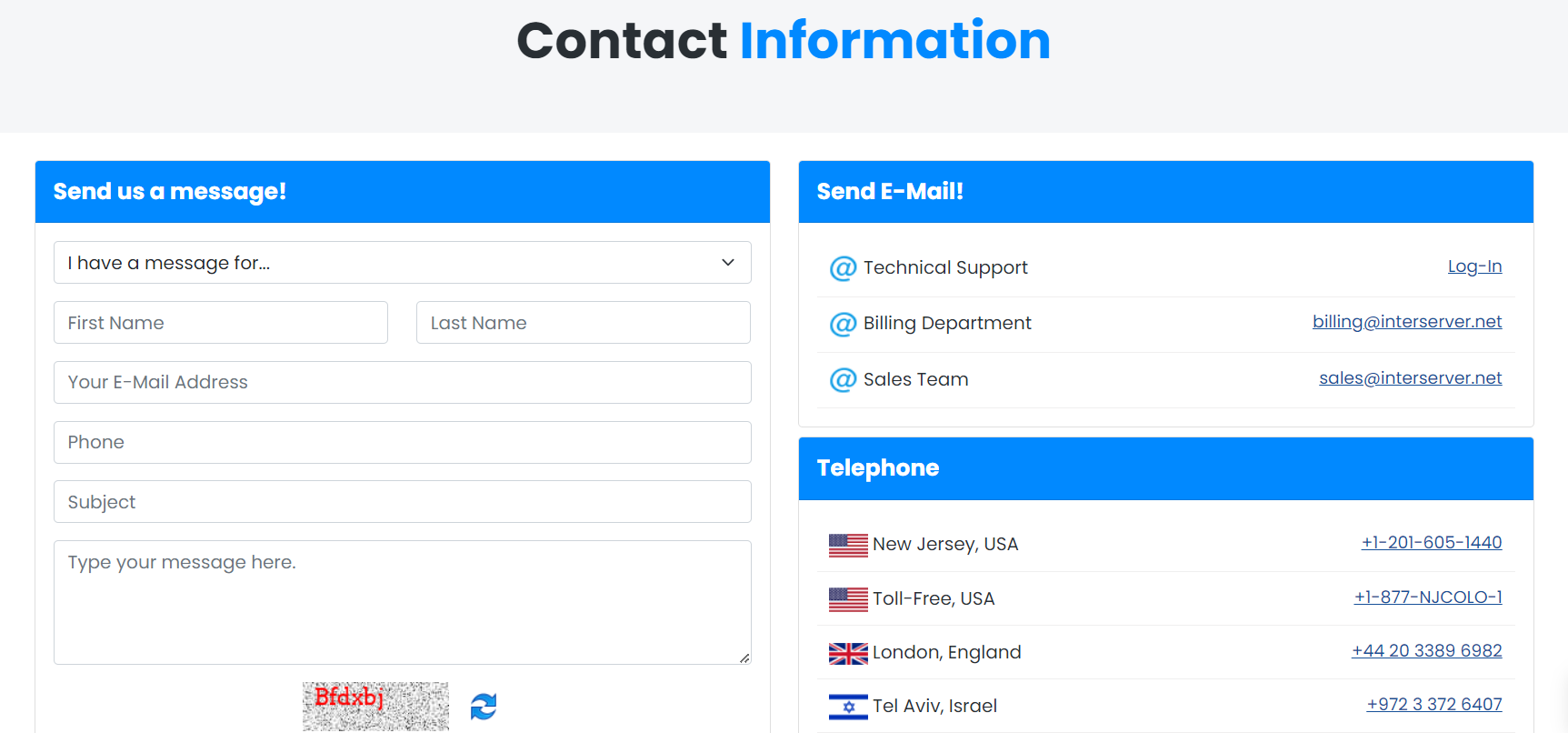
InterServer, on the other hand, offers more diversified support channels, including phone, live chat, and a ticket system. InterServer also provides email support and has a dedicated support team for managed services. The company supports proactive and daily backups, ensuring data security, and offers user-friendly control panels coupled with Softaculous for one-click installations. The broad range of support channels makes it a slightly more versatile choice for different needs.
WP Engine vs Interserver: User feedback
WP Engine exudes excellence in managed WordPress hosting, boasting top-notch technical support that’s often highlighted as a standout feature. Users appreciate the user-friendly dashboard, seamless migration tools, daily backups, and solid security measures, all of which contribute to high performance and reliability. However, the service does come at a higher price point, which some users find steep, especially for entry-level plans or smaller projects. Despite occasional concerns about costs and some technical nuances, WP Engine’s premium service quality justifies the expense for many, making it a highly recommended solution for businesses and developers alike.
User feedback on the hosting provider paints a mixed picture. Many users commend the provider for its affordable, straightforward pricing and extensive features like unlimited storage and bandwidth, free SSL certificates, and a user-friendly control panel. The customer support, while generally prompt and effective, has garnered both praise and criticism, especially due to the lack of a dedicated phone support line and sometimes long live chat wait times. However, performance issues such as inconsistent server speed, downtime, and occasional loss of data have been frequent points of frustration for users.
WP Engine vs Interserver: FAQ
Which platform is better suited for hosting WordPress websites?
WP Engine is better suited for hosting WordPress websites due to its specialized managed WordPress hosting services, optimized performance, and advanced security features such as EverCache® technology and proactive threat blocking. Its managed plans and developer tools cater specifically to WordPress users, offering features like automated updates, staging environments, and premium themes. InterServer also supports WordPress, but it does not offer the same level of specialized optimization and support as WP Engine, making WP Engine a superior choice for WordPress hosting.
What are the major differences in pricing and value between WP Engine and InterServer?
WP Engine’s plans start at $20/month for managed WordPress hosting, including advanced features like automated updates, premium themes, and priority support. In contrast, InterServer offers more budget-friendly plans starting from $2.50/month for shared hosting, with unlimited storage and free SSL certificates. While WP Engine provides premium services optimized for WordPress with a focus on performance and security, InterServer delivers a more versatile hosting solution at a lower cost, making it a better value option for users seeking affordability and flexibility.
Which hosting service offers better security features?
WP Engine offers superior security features with enterprise-grade technology, including automated threat detection blocking millions of attacks daily, DDoS mitigation, managed WAF, and SSL certificates. Additionally, WP Engine provides automated WordPress updates, daily backups, and proactive security alerts. InterServer also offers robust security through its InterShield solution, focusing on spam and virus protection and machine learning firewalls, but it does not match the comprehensive, specialized security measures provided by WP Engine.
Which service is more suitable for hosting a high-traffic website?
WP Engine is more suitable for hosting high-traffic websites due to its 99.99% uptime SLA, EverCache® technology, and extensive global CDN, designed to handle high traffic volumes efficiently. Its managed WordPress hosting plans include performance optimizations and isolated resources to manage traffic spikes without requiring plan upgrades. While InterServer also offers good performance with SSD caching servers and Cloudflare CDN integration, WP Engine’s dedicated resources and optimization for heavy traffic make it a better choice for high-traffic websites.
What are the differences in the control panels offered by each hosting service?
WP Engine provides an advanced control panel specifically designed for WordPress users, integrating tools like Git Push, SSH Gateway setup, and a comprehensive user portal for managing performance and security. InterServer relies on more traditional control panels such as cPanel and DirectAdmin, known for their simplicity and user-friendliness, particularly for non-technical users. While InterServer’s control panels are versatile and widely recognized, WP Engine’s specialized panel offers more advanced features tailored to WordPress site management.
The making of this blog
We followed a clear, step-by-step process to write and research this article.









